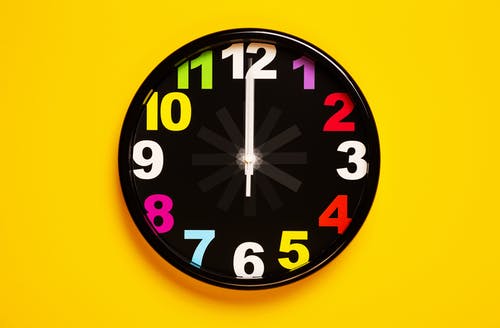For the past week I’ve been researching and reading papers on the statistics around recovery rates of people living with eating disorders.
I’ve always known the figures around rates of full recovery were heartbreakingly low and that anorexia nervosa has the highest mortality rate of any mental illness but as with most things when I started looking into it the data available simply doesn’t give a clear consensus.
However, what it does show, no matter what way you look at it, is that the chances of making a full recovery from an eating disorder are uninspiring to bleak.
And this begs the question “Why”?…
Why are recovery rates so low?
Why is it so hard to recover from an eating disorder?
Why are our treatment methods not successful in getting more people to full recovery?
Being someone who lived with anorexia nervosa for 15 years there are many answers I could give to these questions. However, within this blog I want to start by sharing just one.
A big one.
The reason why recovery rates from eating disorders are so low that essentially encompasses all the other reasons.
The main reason people living with eating disorders find themselves lapsing and relapsing often for multiple years or even going their entire lives unable to fully break free of the illness is because full recovery requires overcoming past trauma and early conditioning, letting go of perfectionist tendencies, creating empowering beliefs, understanding combined with the ability to act in alignment with your values, self-acceptance, rebuilding trust in yourself and the capacity to set and uphold boundaries amongst other things.
Amongst.
Many.
Other.
Things.
Ultimately, what I am getting at is that recovery from an eating disorder requires almost a complete change in identity.
People always want to know what the “turning point” of my recovery was.
They want to know the epiphany moment when I finally decided to recover.
The truth is I had multiple “turning points”.
The truth is I decided to recover more times than I can count. Possibly daily. Likely multiple times a day.
I remember lying awake at night in too much pain and too hungry to sleep swearing to myself that tomorrow would be different.
The morning would come and go…
…and come and go…
…and come and go…
…and it wouldn’t be any different.
Making the decision to recover, contrary to popular opinion is not the biggest, hardest nor most important part of recovery.
The biggest myth of eating disorder recovery is that at some point it will all just “click”, that you’ll gain enough knowledge or understanding that with this correct amount of knowledge and understanding you’ll suddenly be 100% motivated and ready to go all in with recovery.
The biggest myth is that if only you (or they) were motivated enough they could do it.
It’s a harmful myth because it’s simply not true.
I wish it was because that would make the whole thing a lot simpler.
What I learned and what all people who make full recovery their reality eventually have to learn is that when you’re doing recovery there’s not really a single moment, let alone an extended period of time where you are 100% motivated.
One of the greatest lessons I learned from living with and recovering from anorexia nervosa was the power of the experience.
One of the greatest lessons I learned was letting go of the need to understand or to know the outcome ahead of time.
One of the greatest lessons I learned was to let go.
One of the greatest lessons I learned was to do and then and only then (after doing) gain the lessons, learnings and insight you need to make an assessment.
When you recover from an eating disorder you are stepping from one way of doing life into a completely different way of doing life.
And if that new way of doing life is to become anything close to sustainable it’s got to become who you are.
Not something you do or something you have but who you are.
Who. You. Are.
Because sure, anyone can change a behaviour momentarily including eating more and gaining weight but until this becomes just who you are and what you do, normally, naturally and by default it is going to take a lot of willpower to maintain. And anything that takes a lot of willpower to maintain is simply not going to be maintained.
And this is exactly why the percentage of people who fully recover from eating disorders is lower than those that die or live a life of lapse and relapse.
Because they may receive treatment where “successful” treatment is defined as medical stabilisation, but they never get the chance to participate in treatment that facilitates them to let go of every reason they’ve ever needed to have the eating disorder in the first instance and equally importantly build the necessary skills and resources that guarantee an eating disorder simply cannot be a part of their life ever again.
We need to focus as much if not more attention, resources and time on this side of recovery for people as the side of recovery that involves keeping us alive because if we did the side that involved keeping us alive becomes unnecessary.
If you are in recovery or contemplating how to go about recovering from an eating disorder consider focusing your resources (time, energy and money) on treatment that helps you to understand your mind and builds your confidence, self-trust and capacity to feel excited and curious versus fearful to step out into the world free of the eating disorder and instead free to be yourself.
The Take Home Important Bits

In summary there are 3 main things I want to encourage you to take away from this post.
- Recovery from an Eating Disorder Requires Change at Your Identity Level
Recovery from an eating disorder means shifting from one way of doing life to an entirely new way of doing life and this requires a change in identity. In other words recovering from an eating disorder if it is to be a full and permanent recovery requires you to change how you think about yourself.
- Recovery from an Eating Disorder Requires Action
Unfortunately, you cannot do recovery fully inside your head and you do have to take steps in the outside world.
Recovery from an eating disorder requires action even when that action feels hard (or impossible).
There isn’t going to be a moment where you feel fear free and 100% motivated or committed to recovery. Take the actions anyway.
- Recovery from an Eating Disorder Takes Time
In general, I talk about the time it takes to recover from an eating disorder a little differently to most in that I do think when you start to make changes you can recover relatively fast but having said that in all honesty when you are committed to the above two points recovery can and in most cases still does take years.
Full recovery from an eating disorder often takes people years.
There is a lot to learn and do.
There is a lot to undo and there is a lot to become.
Full recovery is possible no matter what you’ve been told and no matter what you feel.
It’s not inevitable and it’s at no point in time guaranteed that you will recover (because if it was the statistics wouldn’t be so grim) but it is possible.
There are plenty of people walking around who once lived with an eating disorder and no longer do.
These people’s stories are far more valuable than any statistics could ever convey.
With my whole heart I hope you found this information useful and inspiring.

Become Great. Live Great.
Bonnie.



